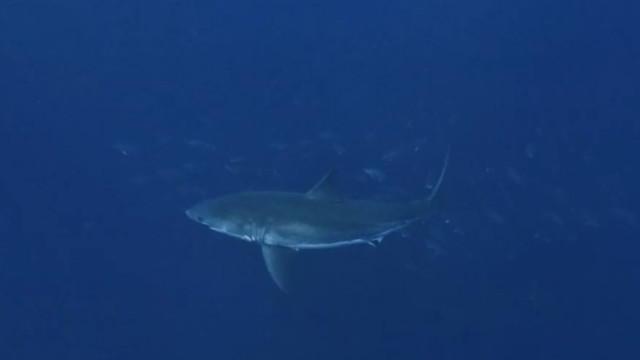Beachgoers at Foz do Arelho in Caldas da Rainha, Leiria district, experienced an unexpected interruption last Wednesday, July 9, due to a shark sighting.
The sighting prompted lifeguards to raise the red flag, but normal conditions were later restored.
In a statement released on the day of the incident, the Caldas da Rainha City Council indicated that the shark was allegedly a ‘Prionace glauca,’ commonly known as the blue shark, described as “a species quite common in Portuguese waters and often caught by fishermen, intentionally or not.”
The City Council noted, “In normal situations, there is no cause for alarm,” but if such sharks are spotted near the coast while hunting for fish, as appeared to be the case, “it is not advisable for swimmers to remain in the water,” hence the red flag was raised for “a few hours.”
Nevertheless, the council emphasized that the situation does not “cause great concern,” considering it a “sporadic situation.”
If sharks are sighted again at Foz do Arelho beach, the City Council advises reporting to lifeguards or the Peniche Port Authority.
Last year, several shark sightings were reported in the Autonomous Region of the Azores.
Among the videos shared in the summer of 2024 on Azorean Facebook group social media, one garnered significant online attention: footage of a great white shark off the coast of Faial Island.
At the time, a discussion with Jorge Fontes, a biologist from the OKEANOS Marine Science Research Institute, took place.
Fontes explained that there is no evidence of an increase in shark abundance generally. “On the contrary, all available data point to a sharp decline in the populations of most shark species worldwide and particularly those common in the Azores, such as the blue shark, mako shark (known locally as rinquim), or hammerhead shark.”

“Many species found in the Azores are threatened according to the IUCN [International Union for Conservation of Nature],” Fontes remarked.
The biologist is convinced that it’s the sharks that are threatened, “due to overfishing.”
However, several species of shark are consumed in Portugal, including the blue shark—the one spotted at Foz do Arelho.
This species is prevalent in Portuguese cuisine, especially in Alentejo, where Shark Soup is a delicacy.
The blue shark, also known as tintureira, is relatively small compared to other shark types, reaching a maximum length of 2 meters.




